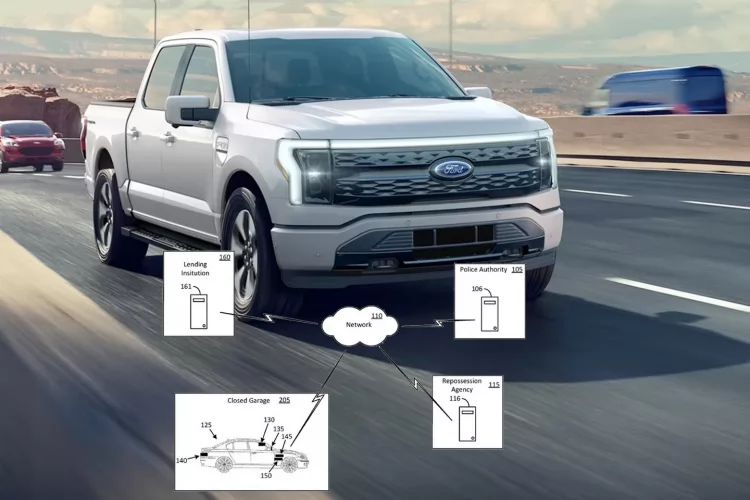There’s a transformative shift happening in the automotive world with the rise of smart tires. These advanced tires not only enhance road safety by providing real-time data on tire health, but they also improve your overall driving experience with features like automatic pressure adjustments and weather condition monitoring. As you navigate modern roads, your tires can become an crucial component of optimal vehicle performance, ensuring you remain connected and informed. Join us as we explore how these innovative tires will revolutionize your drive and keep you ahead on the road.
Key Takeaways:
- Enhanced Safety: Smart tires equipped with sensors can monitor tire pressure, temperature, and tread wear, ensuring optimal performance and reducing the risk of accidents.
- Improved Efficiency: By providing real-time data on tire conditions, smart tires help in optimizing fuel consumption and extending tire lifespan, contributing to overall vehicle efficiency.
- Connected Driving Experience: Integrated with vehicles’ onboard systems, smart tires offer connectivity that enables features like predictive maintenance alerts and performance analytics, enhancing user experience.
The Evolution of Tire Technology
For decades, the world of tire technology has undergone significant transformations, shaping how you experience driving. From basic rubber hooped around wooden wheels to the sophisticated structures we rely on today, the evolution of tires reflects the advancements in materials, engineering, and safety that have significantly improved your journey on the road.
Historical Development of Tires
Between the early 19th century and the present day, tire innovation has evolved at an impressive pace. Initially, tires were made of solid rubber or bands of iron, designed primarily for durability rather than comfort. The introduction of the pneumatic tire by John Boyd Dunlop in 1887 marked a turning point. This innovation led to a wave of advancements, resulting in tires that not only enhanced ride quality but also improved vehicle performance, reducing road noise and enhancing grip.
As the automobile industry expanded in the 20th century, tires began to incorporate more advanced materials like synthetic rubber and radial constructions. The shift to radial tires in the 1940s introduced a design that allowed for better handling and longevity, allowing you to travel longer distances with less worry about tire performance. The focus on safety led to features such as tread patterns that enhance grip, as well as the introduction of run-flat technology, which allows you to drive even after a puncture.
The Shift Towards Smart Technologies
Before the advent of smart tires, you primarily relied on visible indicators for tire health and performance. However, the growing emphasis on vehicle connectivity and safety has catalyzed a significant shift towards integrating smart technologies into tire design. These innovations include sensors that monitor tire pressure, temperature, and tread wear in real time. Such technologies mean that you can actively receive alerts about tire conditions, potentially preventing hazardous situations before they arise.
Tires equipped with smart technology are designed to enhance your driving experience by providing data that aids in maintaining optimal performance. With the ability to assess your driving habits, smart tires can adapt to different road conditions, giving you a heightened level of control. They provide valuable analytics, which enhance not only your safety but can also help you understand how to improve fuel efficiency by modifying your driving style. The integration of these technologies signifies a move towards a more intelligent driving experience, making your travels safer and more enjoyable.
Tires of Tomorrow – How Smart Tires Will Revolutionize Your Drive
What are Smart Tires?
The world of automotive technology is rapidly evolving, and one of the most exciting innovations on the horizon are smart tires. These advanced tires are equipped with sensors and technology that enable them to communicate vital information about their performance and condition. By monitoring parameters such as tire pressure, temperature, and tread wear in real time, smart tires offer a new layer of safety and efficiency for your vehicle.
Before we probe deeper, it’s important to understand the important features that define smart tires. Typically, they are integrated with systems that allow them to send data directly to your vehicle’s onboard computer or a mobile app, enhancing your driving experience. This connectivity means you can receive alerts about potential issues before they become serious problems, allowing you to address them proactively.
Types of Smart Tires
Above all, there are various types of smart tires that cater to different driving needs and environments. Each type brings its own set of features and benefits that can greatly enhance your driving safety and efficiency. Here are some of the most common types:
| Type | Description |
| Pressure Monitoring Tires | These tires monitor and report tire pressure to help avoid blowouts and maintain optimal performance. |
| Temperature Monitoring Tires | This type tracks temperature fluctuations, alerting you to overheating that could lead to tire failure. |
| Tread Wear Sensors | These make it easy to monitor tread depth, ensuring you replace tires before they become unsafe. |
| Adaptive Tires | They can adjust their properties based on driving conditions for enhanced traction and performance. |
| Connected Tires | These models offer connectivity features, allowing real-time data to be sent to your smartphone or vehicle’s system. |
Also worth noting are the distinct features that differentiate these smart tire types. For instance, pressure monitoring tires work continuously, alerting you if your tires are losing air, which can dramatically improve your driving safety. Similarly, adaptive tires utilize advanced technology to modify their stiffness and grip based on weather conditions, enhancing your control over the vehicle during adverse conditions.
| Feature | Benefit |
| Real-Time Alerts | Instant notifications about tire issues can save you from potential accidents. |
| Data Logging | Collects historical performance data to analyze tire wear patterns over time. |
| Remote Monitoring | Allows you to check your tire status even when you’re not beside the vehicle. |
| Enhanced Safety Features | Many smart tires provide additional safety protocols for drivers. |
| Fuel Efficiency | Optimizing tire performance can lead to lower fuel consumption. |
Recognizing the vast improvements brought about by smart tires, not only can these innovations lead to safer driving experiences, but they also can result in greater fuel efficiency and reduced maintenance costs. As you consider your next tire purchase, it’s important to think about how smart tires can impact your overall driving experience and safety.
Benefits of Smart Tires
Unlike traditional tires, smart tires integrate advanced technology to enhance your driving experience significantly. This innovative approach offers numerous benefits, from improved safety features to optimized fuel efficiency, ensuring you get the most out of your vehicle. By providing real-time data and insights into tire performance, smart tires will not only change how you drive but also how you maintain your vehicle.
Enhanced Safety Features
Between weather changes, road conditions, and tire wear, driving can often become unpredictable. Smart tires are equipped with sensors that continuously monitor tire pressure, temperature, and tread depth. This means you receive timely alerts about potential issues before they escalate, allowing you to take necessary precautions. With the ability to detect when tires are underinflated or overinflated, you can avoid blowouts and improve overall handling, making your driving experience safer.
Moreover, some smart tire systems can connect directly to your vehicle’s onboard diagnostics, providing real-time warnings about issues that could compromise your safety. With features like traction monitoring, you can receive notifications when road surfaces become slick or challenging, giving you the chance to adjust your driving accordingly, which ultimately increases your chances of avoiding accidents.
Improved Fuel Efficiency
Enhanced fuel efficiency is another remarkable benefit of smart tires. When your tires are properly inflated and well-maintained, your vehicle requires less energy to move. Smart tires come equipped with technology that helps maintain optimal tire pressure automatically, ensuring that you get the best possible fuel economy. This not only saves you money at the pump but also reduces your carbon footprint, making it an environmentally friendly choice.
Even small adjustments through the data provided by smart tires can lead to significant improvements in your everyday driving. For instance, maintaining the recommended tire pressure can improve fuel efficiency by up to 3%, translating into substantial savings over time. By monitoring your tire’s performance and providing insights, smart tires empower you to make decisions that enhance your vehicle’s efficiency.
Real-time Data Monitoring
Above all, real-time data monitoring provided by smart tires offers you a new level of control over your driving experience. You will have access to ongoing assessments of tire health, allowing you to stay informed about potential problems and maintenance needs. This capability not only enhances safety but also extends the lifespan of your tires by promoting timely interventions, reducing the likelihood of premature wear and tear.
Also, this real-time feedback can lead to better overall vehicle performance. By understanding how your tires interact with the road, you can adjust your driving style accordingly, optimizing both safety and efficiency. The integration of smart tire technology represents a significant leap forward; with it, you can have the peace of mind that comes from knowing you’re driving on the best possible tires for your specific needs.
The Future of Smart Tires
Now, as technology continues to advance at breakneck speed, the future of smart tires is becoming an exciting topic of discussion. These innovative tire systems are set to transform your driving experience by offering enhanced safety, improved performance, and greater convenience. With an array of sensors and connectivity options, smart tires can provide real-time data to help you make informed decisions while on the road, ensuring a more enjoyable journey.
Integration with Autonomous Vehicles
Around the world, autonomous vehicles are beginning to reshape the transportation landscape, and smart tires are key players in this evolution. By integrating seamlessly with self-driving technology, smart tires can gather and relay important information about road conditions, temperature, and tire pressure directly to the vehicle’s navigation system. This allows the autonomous vehicle to make split-second adjustments, enhancing traction and stability, thereby increasing your safety and comfort as you navigate diverse road environments.
Additionally, the communication between smart tires and autonomous systems can result in substantial efficiency gains. For instance, through the analysis of wear patterns and tire performance, vehicles can optimize their energy usage, leading to lower operational costs. This ultimately means your driving experience becomes not only safer but also more economical, allowing you to enjoy longer journeys without the frequent disruptions of maintenance checks.
Environmental Impact and Sustainability
The focus on sustainability and mitigating environmental impact is increasingly relevant in today’s world, and smart tires are well-positioned to contribute to these efforts. The technology behind smart tires can lead to significant reductions in fuel consumption and tire waste through real-time data analysis. By optimizing tire pressure and performance, you can improve your vehicle’s fuel efficiency, which in turn decreases greenhouse gas emissions associated with your trips.
The transition to smart tires further contributes to a cleaner environment by reducing the amount of waste generated from traditional tire usage. Investing in durable and sustainable materials allows manufacturers to create tires that not only perform better but also last longer. This means fewer tires in landfills and a decreased carbon footprint for every mile you drive. Moreover, the use of advanced recycling technologies in the tire production process ensures that the materials can be repurposed, promoting a circular economy that benefits both you and the planet.
It is vital to understand the broader implications of this technology. With the increased focus on sustainable practices, smart tires play a vital role in reducing the environmental impact of personal transportation. As you consider the options for your next vehicle, embracing smart tires will not only enhance your driving experience but also contribute to a more sustainable future for all.
Summing up
With these considerations, it becomes evident that smart tires represent a significant advancement in automotive technology that can enhance your driving experience. By integrating sensors and wireless technology, smart tires provide real-time data about tire performance, road conditions, and maintenance needs. This not only contributes to your safety on the road but also optimizes fuel efficiency and extends the lifespan of your tires. As you transition into the era of smart driving, you will discover how these innovations can lead to more informed decisions and a more enjoyable driving experience.
In embracing smart tires, you unlock a world of possibilities ranging from improved safety measures to enhanced performance insights. These intelligent systems empower you to maintain better control of your vehicle in various driving conditions while actively monitoring key parameters that affect your vehicle’s handling and efficiency. As these technologies evolve and become more widely adopted, you can anticipate a future where driving is not just a means of transportation, but a seamless and enriched part of your daily routine.
FAQ
Q: How do smart tires improve driving safety?
A: Smart tires enhance driving safety by utilizing advanced sensors and technology to monitor tire pressure, temperature, and tread wear in real-time. This information is relayed to the driver through an app or vehicle dashboard, allowing for proactive maintenance and alerting the driver to any issues before they lead to potential accidents. For instance, if a tire is under-inflated or shows signs of significant wear, the system can notify the driver, enabling timely action to avoid blowouts or reduced grip on the road, thus elevating overall safety.
Q: What are the environmental benefits of smart tires?
A: The environmental benefits of smart tires are significant. These tires are designed to optimize fuel efficiency by maintaining the proper tire pressure and enhancing tread performance, leading to reduced rolling resistance. This translates to less fuel consumption and lower emissions. Additionally, smart tires often come with advanced materials that enhance durability, which can extend the lifespan of the tires and reduce tire waste. By adopting smart tire technology, drivers contribute to more sustainable driving practices and a decreased overall carbon footprint.
Q: Will the implementation of smart tires increase vehicle maintenance costs?
A: While the initial investment in smart tires may be higher than traditional tires, the long-term benefits often outweigh the costs. Smart tires offer predictive maintenance capabilities, which can reduce unexpected repair expenses by alerting drivers to potential issues before they escalate. Furthermore, by improving fuel efficiency and extending the lifespan of the tires, drivers can save money in the long run. As the technology becomes more widespread and production costs decrease, pricing is expected to become more competitive, making smart tires an economically viable option for many drivers.



